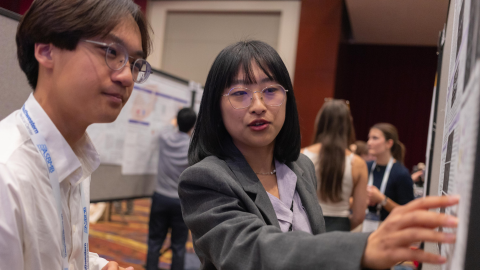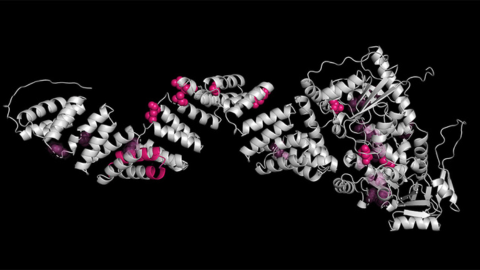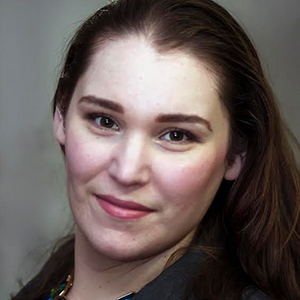
Mentoring in 30 minutes
At the bench, scientists must be comfortable navigating the unknown. Every breakthrough begins with a question, a search for new knowledge. Every experiment, every piece of data – yes, even the negative data – adds another piece to the puzzle and more clarity to the picture, with protocols and past findings as a guide. There may be setbacks along the way, “I’m looking at you, negative data,” but the resilience to get back up or find a way around a complex problem is a skill sharpened over countless hours in the pursuit of making the unknown known.
Problem-solver. Explorer. Methodical yet adaptable. Successful scientists must be all these things. Such skills can serve us well when we’re navigating other aspects of our career progression, but they have their limits. Enter mentorship to counterbalance those limits.
Whether your path is leading you to academia, industry or government, you can think of mentoring as presenting your progress at a lab meeting and refining your research plan based on the feedback of your peers. Whether you’re at the start of your career journey or fully established and looking at a fork in the road, a good mentor can help identify a missing puzzle piece or help you see how all the pieces fit together.
At DiscoverBMB 2023 in Seattle, we debuted one-on-one mentoring booths in the exhibit hall. Between the symposia, spotlights and poster sessions, nearly 90 attendees carved out 30 minutes of their busy meeting schedules to seek advice from our volunteer mentors.

The booths will be arranged by target audience:
- Undergraduate student or postbaccalaureate trainee. Book an appointment if you’d like advice on figuring out which graduate program might be the best fit for you or what additional training to pursue before entering the workforce.
- Graduate student or postdoc. Our mentors can help you figure out when it’s time to take your next step and what that step might be.
- Junior faculty member or faculty in transition. You don’t stop needing mentors when you finish your training; book an appointment for advice on how to thrive in the faculty ranks or take on new administrative responsibilities.
- Current or aspiring undergraduate educator. From putting together a teaching philosophy to implementing an active learning strategy in your classroom or supporting undergraduates in your lab, our mentors can help you hone your educational craft.
- Writing or thinking about writing a grant. Whether you’re deciding what funding mechanism makes the most sense for your work or how best to present your ideas, our experienced grant writers and program officers can help you strategize.
- Transitioning to industry. Mentors who have made a similar transition in their career journeys can help you figure out if this path is right for you.
The perspective of someone with different skills and experiences can help you regain the confidence to navigate the unknown in your career. Stop by the mentoring booths in the exhibit hall and tap into the collective expertise of our community.
If you have a question about your career and 30 minutes in your meeting schedule, we have a mentor for you.
Details
Sign up for one-on-one mentoring in the exhibit hall at these times:
- Sunday, March 24, 1:30 to 6 p.m. CDT
- Monday, March 25, 1:30 to 6 p.m. CDT
- Tuesday, March 26, 1:30 to 6 p.m. CDT
Enjoy reading ASBMB Today?
Become a member to receive the print edition four times a year and the digital edition monthly.
Learn moreGet the latest from ASBMB Today
Enter your email address, and we’ll send you a weekly email with recent articles, interviews and more.
Latest in Careers
Careers highlights or most popular articles

Upcoming opportunities
Coming soon: ASBMB Breakthroughs webinar on biosynthesis and regulation of plant phenolic compounds and a Lipid Research Division seminar on membrane lipids.

Upcoming opportunities
Just added: New fellowship and research award opportunities. Friendly reminder: Submit your abstract for ASBMB's upcoming meetings.

Upcoming opportunities
Friendly reminder: May 12 is the early registration and oral abstract deadline for ASBMB's meeting on O-GlcNAcylation in health and disease.

Sketching, scribbling and scicomm
Graduate student Ari Paiz describes how her love of science and art blend to make her an effective science communicator.

Embrace your neurodivergence and flourish in college
This guide offers practical advice on setting yourself up for success — learn how to leverage campus resources, work with professors and embrace your strengths.

Upcoming opportunities
Apply for the ASBMB Interactive Mentoring Activities for Grantsmanship Enhancement grant writing workshop by April 15.

